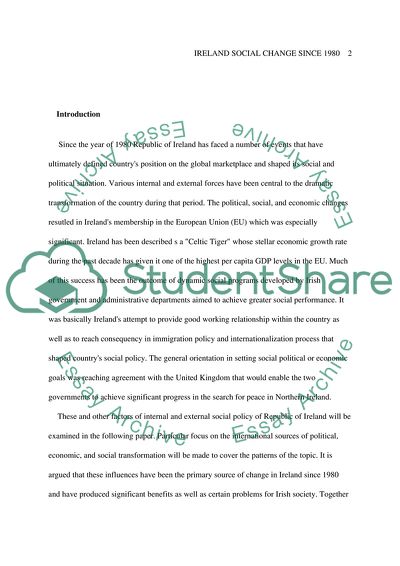Cite this document
(Ireland Social Change since 1980 Coursework Example | Topics and Well Written Essays - 2000 words, n.d.)
Ireland Social Change since 1980 Coursework Example | Topics and Well Written Essays - 2000 words. https://studentshare.org/history/1704388-outline-the-key-external-and-internal-factors-that-you-think-may-have-shaped-change-in-ireland
Ireland Social Change since 1980 Coursework Example | Topics and Well Written Essays - 2000 words. https://studentshare.org/history/1704388-outline-the-key-external-and-internal-factors-that-you-think-may-have-shaped-change-in-ireland
(Ireland Social Change since 1980 Coursework Example | Topics and Well Written Essays - 2000 Words)
Ireland Social Change since 1980 Coursework Example | Topics and Well Written Essays - 2000 Words. https://studentshare.org/history/1704388-outline-the-key-external-and-internal-factors-that-you-think-may-have-shaped-change-in-ireland.
Ireland Social Change since 1980 Coursework Example | Topics and Well Written Essays - 2000 Words. https://studentshare.org/history/1704388-outline-the-key-external-and-internal-factors-that-you-think-may-have-shaped-change-in-ireland.
“Ireland Social Change since 1980 Coursework Example | Topics and Well Written Essays - 2000 Words”. https://studentshare.org/history/1704388-outline-the-key-external-and-internal-factors-that-you-think-may-have-shaped-change-in-ireland.


